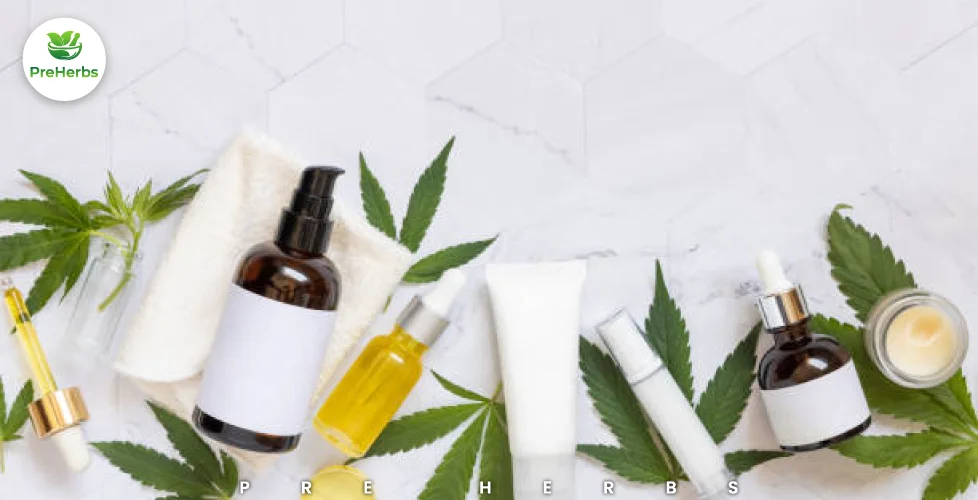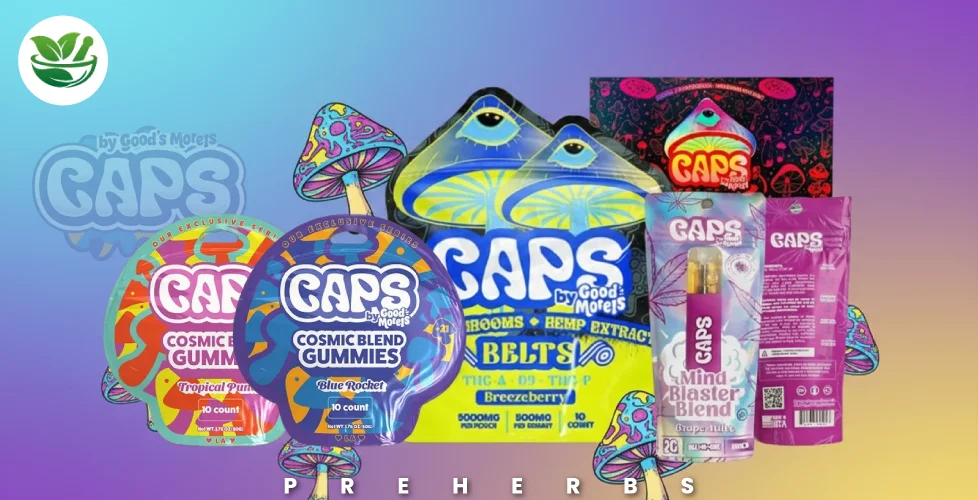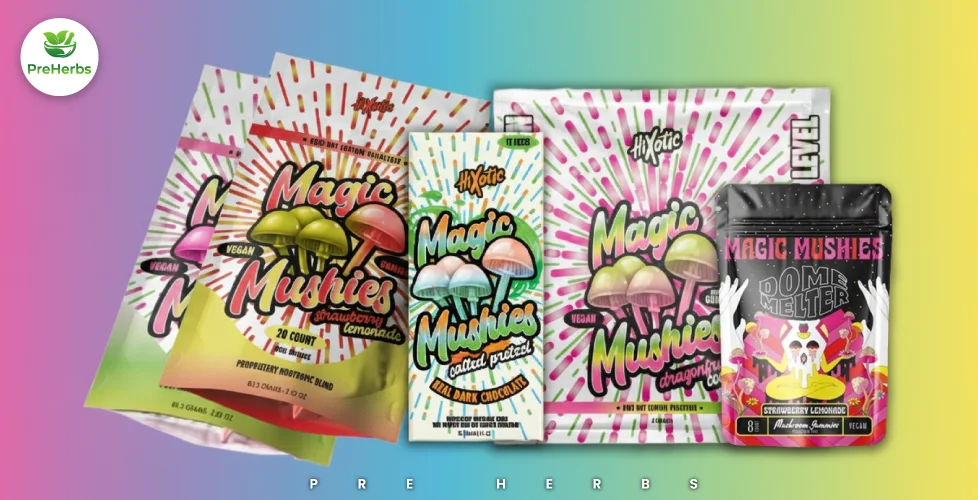In the past decade, CBD has transitioned from a niche wellness trend into a mainstream skincare ingredient. From high-end serums to daily moisturizers, cannabidiol (CBD) has found a permanent spot in the beauty aisle. But while CBD is everywhere, many people still wonder: Does it really work for skin, or is it just marketing hype?
Science is beginning to uncover some exciting possibilities. Although research is still developing, early findings suggest CBD could offer a variety of skin benefits—ranging from acne management and hydration to easing inflammation and even supporting more complex skin conditions. In this article, we’ll explore what CBD does for the skin, the science behind its effects, and the most popular ways people are using it today.
CBD Skin Care Benefits
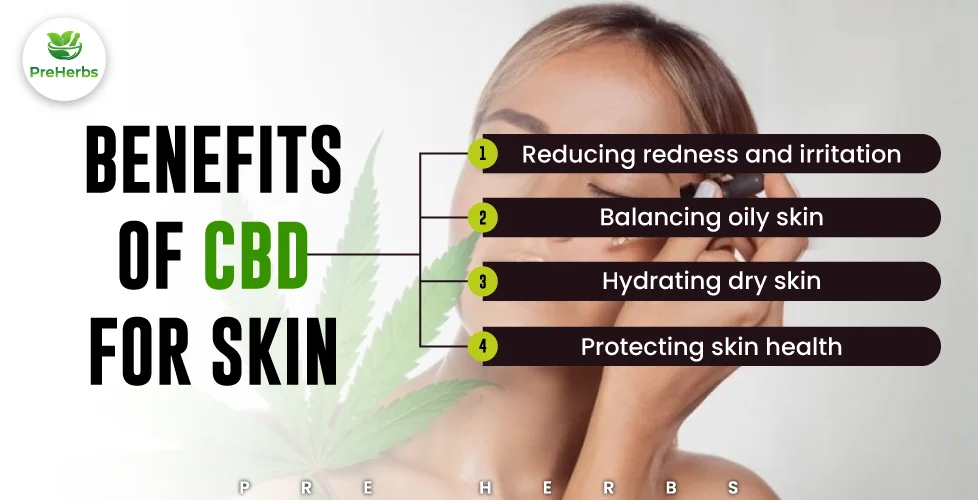
Cannabidiol (CBD) is a naturally occurring compound derived from the Cannabis sativa plant, which includes both hemp and marijuana. Unlike THC (tetrahydrocannabinol), CBD is non-psychoactive, meaning it won’t cause a “high.” What makes CBD especially interesting for skincare is its anti-inflammatory, antioxidant, and calming properties.
When integrated into skincare products like creams, oils, and serums, CBD may help with:
- Reducing redness and irritation caused by environmental stressors or sensitive skin
- Balancing oily skin by regulating sebum production
- Hydrating dry skin by supporting the skin barrier
- Soothing flare-ups from conditions like eczema or psoriasis
- Protecting skin health through its antioxidant properties
These potential benefits make CBD one of the most versatile natural compounds currently explored in dermatology and cosmetics.
Cannabidiol for Skin Health
Our skin is equipped with its own endocannabinoid system (ECS)—a network of receptors that help regulate balance in processes like oil production, inflammation, and cell turnover. When applied topically, CBD can interact with this system to restore balance.
Unlike some harsh skincare actives (such as retinoids or strong acids), CBD tends to be gentle and non-irritating, making it a good option for people with sensitive skin or those who struggle to tolerate traditional treatments.
Because it works holistically with the ECS, CBD doesn’t just mask problems—it may help regulate the processes behind them, offering long-term support for overall skin wellness.
CBD Oil for Acne
Acne is one of the most studied areas where CBD shows promise. Acne develops when sebaceous glands produce too much oil, clogging pores and triggering inflammation. CBD appears to help by:
- Regulating sebum production, keeping oil levels balanced
- Reducing inflammation in sebocytes (sebum-producing cells)
- Calming redness in active breakouts
A few small studies support these effects. For instance, one trial found that applying a topical cream with cannabis seed extract for 12 weeks reduced oiliness and visible redness in participants’ skin.
While more clinical evidence is needed, CBD oil for acne may offer a gentler alternative to harsh acne medications, which can sometimes dry out or irritate the skin.
CBD Cream for Eczema
Eczema, also known as atopic dermatitis, causes patches of red, itchy, and inflamed skin. CBD cream for eczema is gaining attention because it not only hydrates and soothes but also helps regulate immune responses in the skin.
Its anti-inflammatory effects may reduce flare-ups, while the cream’s moisturizing base helps restore the skin barrier. Many users report feeling less itchiness and irritation after regular use, though large-scale clinical trials are still needed to confirm these effects.
CBD Lotion for Dry Skin
Keeping the skin barrier strong is essential for maintaining hydration. CBD lotions are designed to lock in moisture while calming irritation. Unlike basic moisturizers, CBD adds an extra layer of anti-inflammatory protection against environmental aggressors like pollution, sun exposure, or seasonal dryness.
For those with chronically dry or sensitive skin, CBD lotion may help restore elasticity and smoothness, making it a valuable addition to daily skincare routines.
CBD Balm for Psoriasis
Psoriasis is a chronic inflammatory condition where skin cells multiply too quickly, leading to scaling, redness, and discomfort. While there’s no cure, CBD balms may help by:
- Slowing down excessive skin cell growth
- Reducing inflammation in affected areas
- Soothing itchiness and discomfort
Some people living with psoriasis report feeling relief and improved skin texture after consistent use of CBD balms. While it’s not a replacement for medical treatment, it may offer supportive care that improves quality of life.
Acne and Rosacea: How CBD May Help
Beyond standard acne, CBD may also play a role in managing rosacea, a condition marked by redness, flushing, and inflammation. Sebaceous glands—responsible for producing sebum—are key here. These glands aren’t just oil producers; they also transport antioxidants, provide natural antibacterial defense, and even help protect against UV light.
Research shows CBD interacts with CB1 and CB2 receptors within sebocytes, helping balance their activity. By calming inflammation and regulating oil production, CBD may reduce flare-ups of both acne and rosacea.
A small study using a 3% cannabis seed extract cream showed promising results: participants who applied it for 12 weeks experienced less redness and lower sebum levels, hinting at the therapeutic potential of topical cannabinoids.
Hair Growth Disorders: Alopecia, Hirsutism, and Hypertrichosis
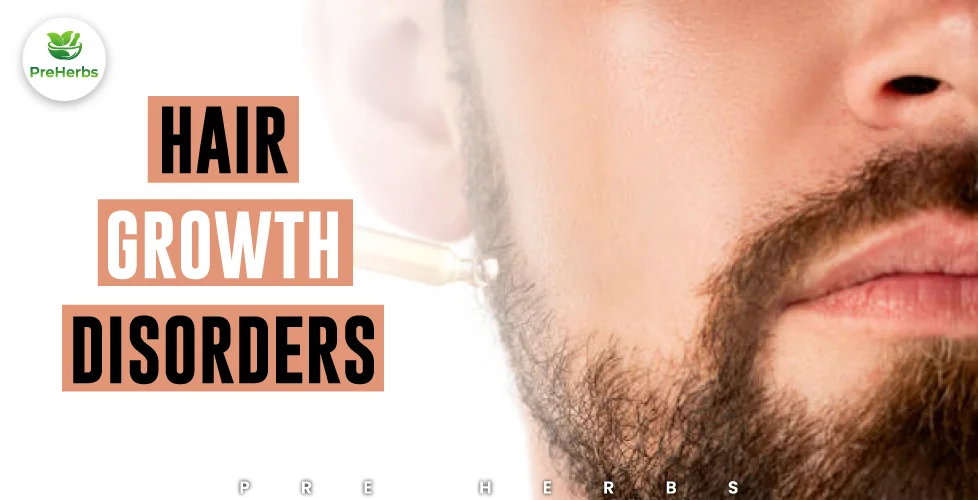
The impact of cannabinoids isn’t limited to skin—they may also affect hair growth. Conditions like alopecia (hair loss), hirsutism (excess hair growth in women in androgen-sensitive areas), and hypertrichosis (excessive hair growth overall) may respond to cannabinoid therapy.
Evidence suggests that activating certain cannabinoid receptors could:
- Support hair regrowth in alopecia
- Reduce unwanted hair in hirsutism and hypertrichosis
- Provide anti-inflammatory benefits for scalp health
Although research is still preliminary, CBD and other cannabinoids could become part of future treatments for hair growth disorders.
Skin Tumors: Basal Cell Carcinoma, Squamous Cell Carcinoma, and Melanoma
Non-melanoma skin cancers like basal cell carcinoma (BCC) and squamous cell carcinoma (SCC) are the most common types of cancer worldwide. Early laboratory research suggests cannabinoids may help fight these tumors by:
- Triggering apoptosis (programmed cell death in cancer cells)
- Blocking angiogenesis (formation of new blood vessels that feed tumors)
- Interrupting cancer cell cycles
In melanoma, a more aggressive form of skin cancer, cannabinoids may also help stop cancer cell growth and spread. While these findings are promising, they come mostly from lab studies rather than large clinical trials. Much more research is needed before CBD can be considered a standard therapy for skin cancers.
Melanocytes and Pigmentation Disorders: Vitiligo and Melasma
CBD’s role in pigmentation is particularly fascinating. The ECS is active in melanocytes, the skin cells responsible for producing melanin. Depending on dosage, cannabinoids may have two opposite effects:
- At low concentrations, cannabinoids may stimulate melanin production, potentially helping with depigmentation conditions like vitiligo.
- At high concentrations, they may induce melanocyte apoptosis, which could benefit conditions involving hyperpigmentation, such as melasma.
This dual effect highlights CBD’s complexity—and its potential versatility—as a skincare agent.
Uses of CBD Skin care
- Acne treatment – CBD oil helps regulate sebum production and reduce inflammation, making it useful for managing breakouts.
- Eczema relief – CBD cream can soothe irritation, moisturize dry patches, and minimize flare-ups.
- Dry skin hydration – CBD lotion restores moisture, strengthens the skin barrier, and combats dryness.
- Psoriasis support – CBD balm may ease discomfort, reduce scaling, and calm inflamed skin.
- Anti-microbial protection – Cannabinoids, including CBD, show potential in fighting bacteria like MRSA.
Anti-Microbial Properties of CBD
CBD and other cannabinoids also display antimicrobial properties. In fact, all five major cannabinoids—CBD, cannabichromene (CBC), cannabigerol (CBG), THC, and cannabinol (CBN)—have shown potent activity against methicillin-resistant Staphylococcus aureus (MRSA), a dangerous antibiotic-resistant bacteria.
Although their clinical use in dermatology is still under investigation, this discovery suggests CBD could one day play a role in preventing or managing bacterial skin infections.
Summary Table of CBD Skin Benefits
A quick overview of the key ways CBD supports skin health and wellness.
| Benefit / Use | CBD Product Type | Skin Concern | How it Works | Key Notes |
| Anti-inflammatory & soothing | Creams, lotions, oils | Redness, irritation | Calms skin via endocannabinoid system | Suitable for sensitive skin |
| Acne control | CBD oil | Acne, rosacea | Regulates sebum and reduces inflammation | Small studies show reduced redness |
| Eczema & dry skin relief | Creams, lotions | Eczema, dry patches | Restores skin barrier, moisturizes deeply | Helps reduce flare-ups |
| Psoriasis support | Balm | Psoriasis | Slows rapid cell turnover, eases discomfort | Not a cure, but supportive |
| Antimicrobial protection | Topical cannabinoids | MRSA, bacterial issues | Fights resistant bacteria | Early but promising research |
Faqs
1. Can CBD help with acne?
Yes, CBD may reduce acne by balancing sebum production and calming inflammation.
2. Is CBD safe for sensitive skin?
Generally, yes—CBD is gentle and often well-tolerated, even on sensitive skin.
3. Does CBD cream work for eczema?
CBD cream may soothe irritation, restore hydration, and reduce eczema flare-ups.
4. Can CBD lotion treat dry skin?
Yes, CBD lotion helps moisturize deeply and strengthens the skin barrier.
5. Does CBD have antimicrobial effects?
Research shows CBD and other cannabinoids can fight certain bacteria, including MRSA.
Conclusion: What Science Says About CBD for Skin
Among all cannabinoids, CBD has become the most widely studied and used in skincare. Its anti-inflammatory, hydrating, and balancing effects make it an attractive option for people dealing with acne, eczema, psoriasis, or simply dryness and sensitivity.
Still, it’s important to remember that much of the evidence is early-stage. While anecdotal reports and small studies are encouraging, large-scale clinical trials are still needed to confirm CBD’s long-term safety and effectiveness.
As research continues, CBD could move from being a trendy ingredient to a science-backed cornerstone of dermatology. For now, if you’re curious about trying CBD for your skin, it may be best to start with high-quality, well-formulated products and monitor how your skin responds.

